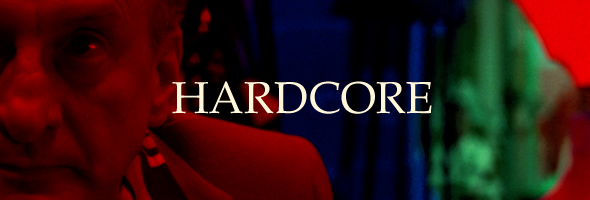
Color, 1979, 107 mins. 41 secs.
Directed by Paul Schrader
Starring George C. Scott, Peter Boyle, Season Hubley, Dick Sargent, Leonard Gaines, Dave Nichols, Ilah Davis
Indicator (Blu-ray & DVD) (UK R0 HD/PAL), Twilight Time (Blu-ray) (US R0 HD), Sony (DVD) (US R0 NTSC) / WS (1.85:1) (16:9)
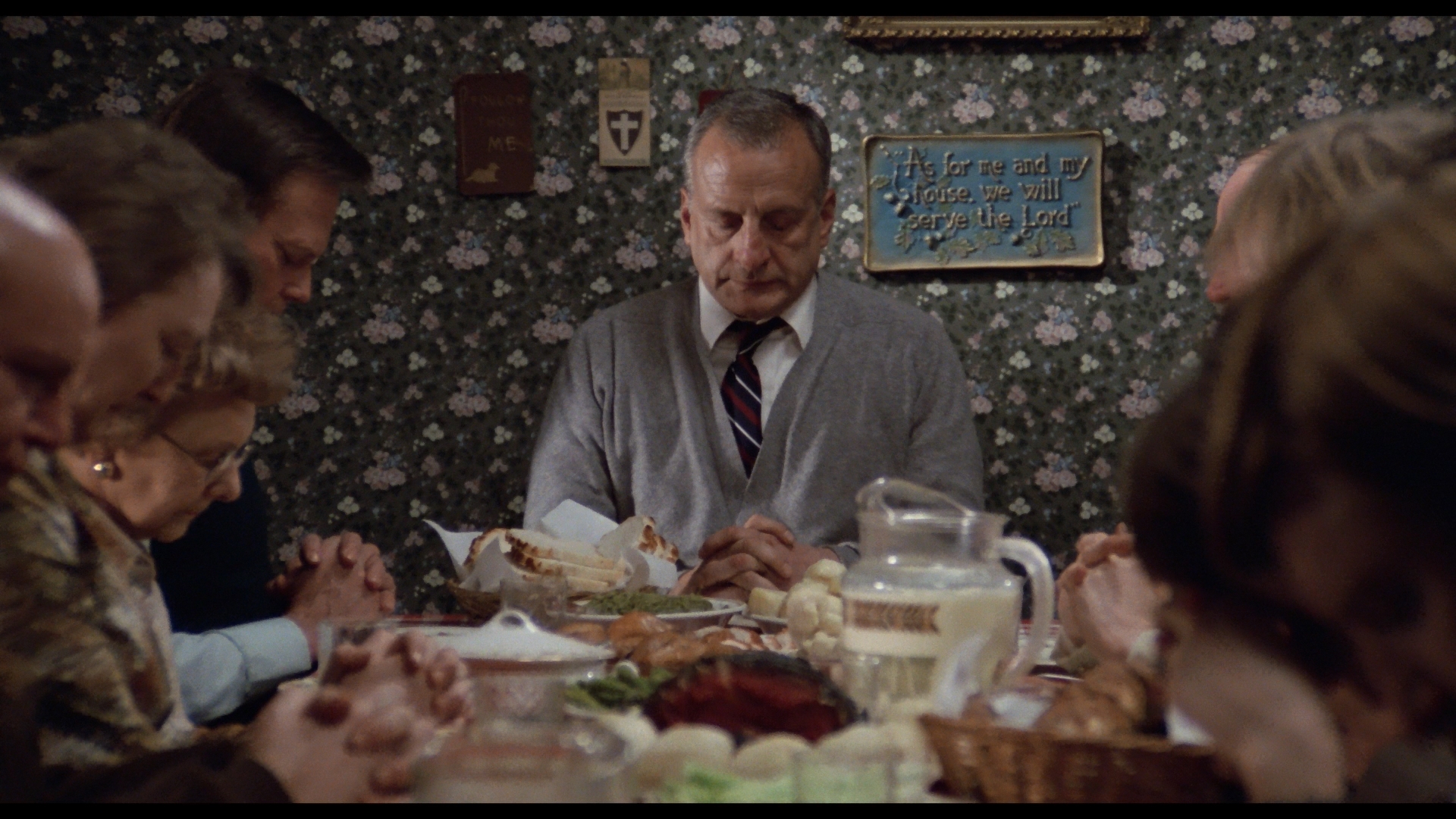
 Despite the astonishing widespread presence of adult films in movie theaters all over the United States during the height of porno chic in the 1970s, Hollywood had a difficult time grappling with the subject and deciding how to portray it. A handful of studio films deal with the subject at the time, most obviously John Byrum's very underrated Inserts and a memorable segment of Russ Meyer's The Seven Minutes, but the one film of the '70s that really tried to come to grips with the state of the porn industry was Hardcore, the second film helmed by writer-director Paul Schrader (after Blue Collar) and a sort of spiritual companion to his most famous screenplay, 1976's Taxi Driver. Equal parts crime film, character study, and moral rumination on the pitfalls of conservative Americana, it's a flawed but fascinating film that treads where few others would have dared at the time.
Despite the astonishing widespread presence of adult films in movie theaters all over the United States during the height of porno chic in the 1970s, Hollywood had a difficult time grappling with the subject and deciding how to portray it. A handful of studio films deal with the subject at the time, most obviously John Byrum's very underrated Inserts and a memorable segment of Russ Meyer's The Seven Minutes, but the one film of the '70s that really tried to come to grips with the state of the porn industry was Hardcore, the second film helmed by writer-director Paul Schrader (after Blue Collar) and a sort of spiritual companion to his most famous screenplay, 1976's Taxi Driver. Equal parts crime film, character study, and moral rumination on the pitfalls of conservative Americana, it's a flawed but fascinating film that treads where few others would have dared at the time. 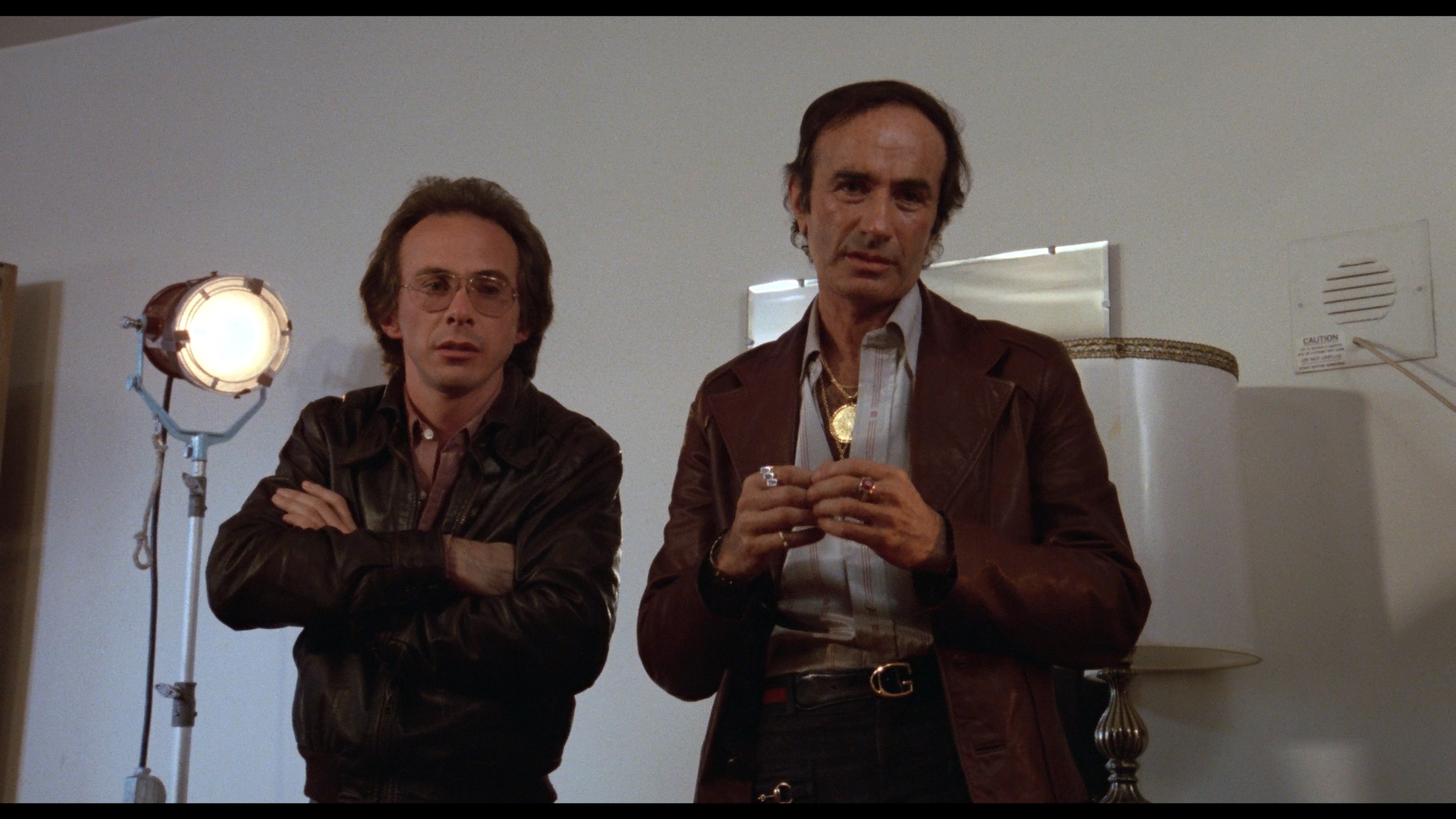 have become involved in the L.A. skin trade. A viewing of a dingy porno loop confirms this, much to Jake's intense horror, and he believes she has been forced into the industry against her will and needs to be rescued.
have become involved in the L.A. skin trade. A viewing of a dingy porno loop confirms this, much to Jake's intense horror, and he believes she has been forced into the industry against her will and needs to be rescued. 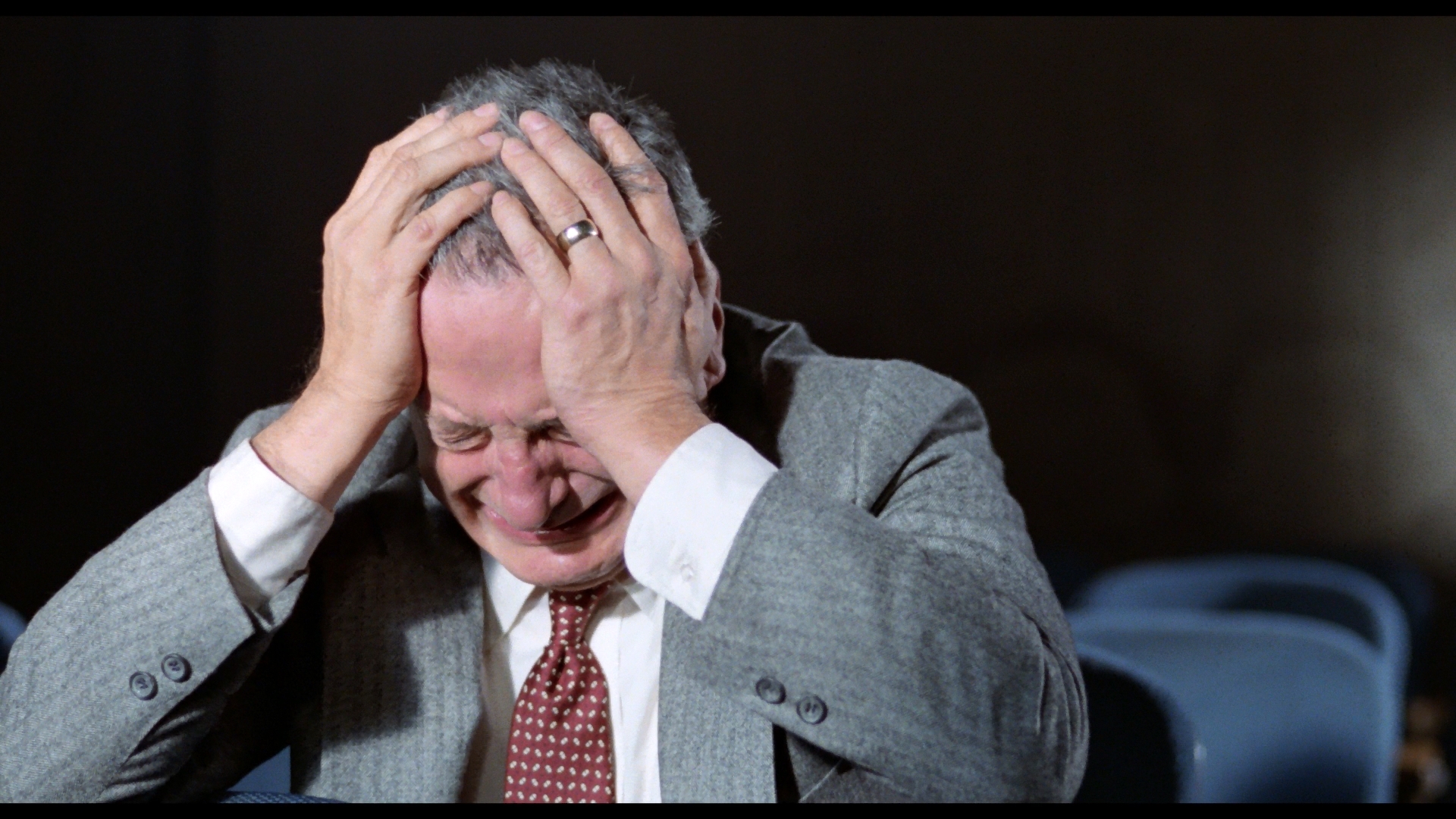 Local law enforcement proves to be a dead end, so Jake embarks on a search that finds him masquerading as a porn producer, auditioning actors, and eventually seeking aid from peep show and loop performer Niki (Hubley), whom he hires to help him scour the entire state on Kristen's elusive trail.
Local law enforcement proves to be a dead end, so Jake embarks on a search that finds him masquerading as a porn producer, auditioning actors, and eventually seeking aid from peep show and loop performer Niki (Hubley), whom he hires to help him scour the entire state on Kristen's elusive trail.  performance by Scott (whose clashes with Schrader were legendary) and a marvelous turn by Hubley, who should have become a much bigger star after this but still held her own later on in films like the great Vice Squad. As more than a few critics have noted, the film's attitude to Niki gets thorny since we come to sympathize with her more than anyone else in the film; in fact, had the second half focused more on her story, the results could have been truly fascinating. Visually it's also striking how the film's style evolves from drab naturalism to an increasingly surreal, stylized look, with one climactic sequence echoing
performance by Scott (whose clashes with Schrader were legendary) and a marvelous turn by Hubley, who should have become a much bigger star after this but still held her own later on in films like the great Vice Squad. As more than a few critics have noted, the film's attitude to Niki gets thorny since we come to sympathize with her more than anyone else in the film; in fact, had the second half focused more on her story, the results could have been truly fascinating. Visually it's also striking how the film's style evolves from drab naturalism to an increasingly surreal, stylized look, with one climactic sequence echoing 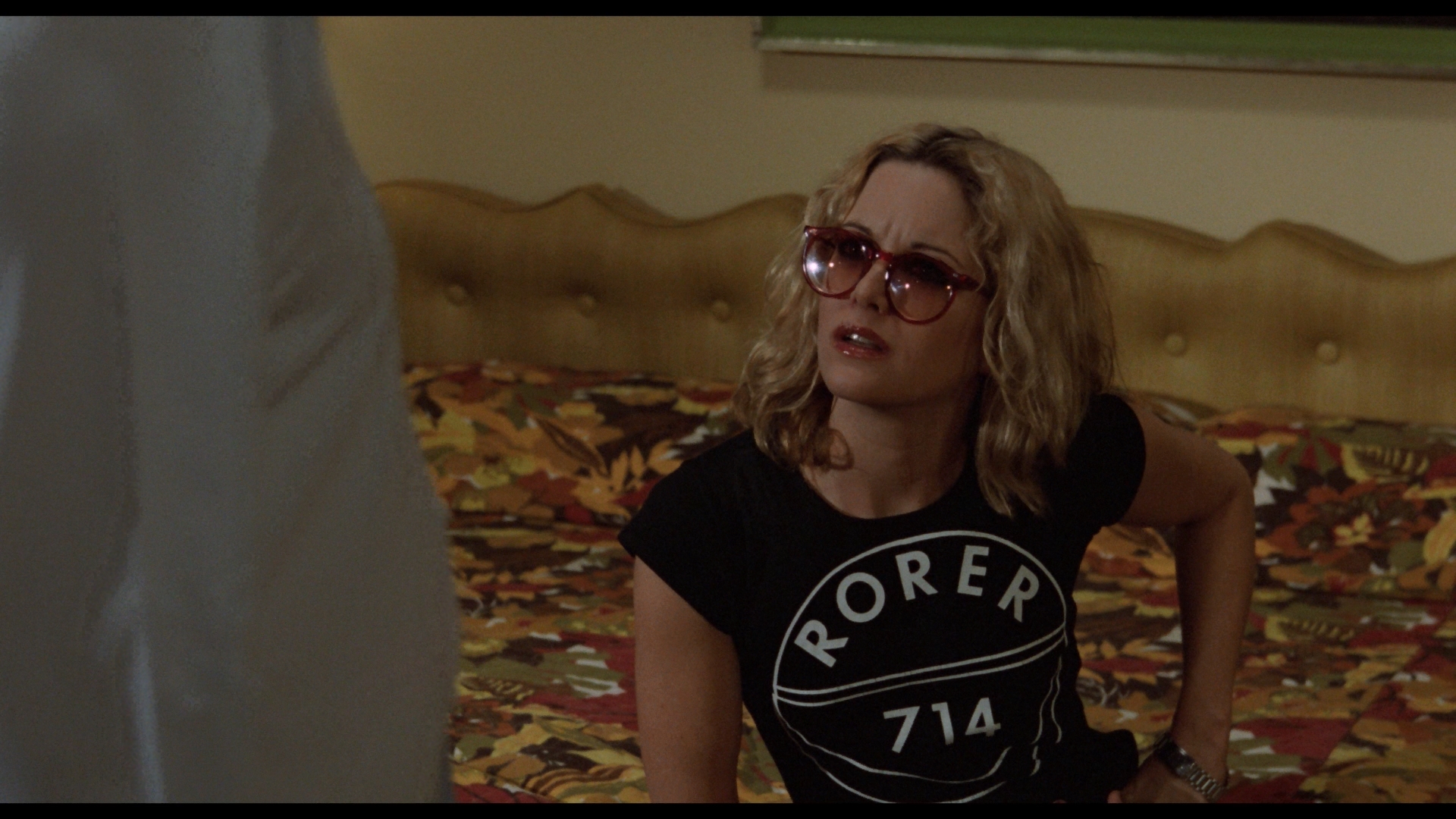 Roger Corman's Masque of the Red Death as an enraged Scott chases his quarry through multiple rooms each bathed in different intense colored lighting.
Roger Corman's Masque of the Red Death as an enraged Scott chases his quarry through multiple rooms each bathed in different intense colored lighting. 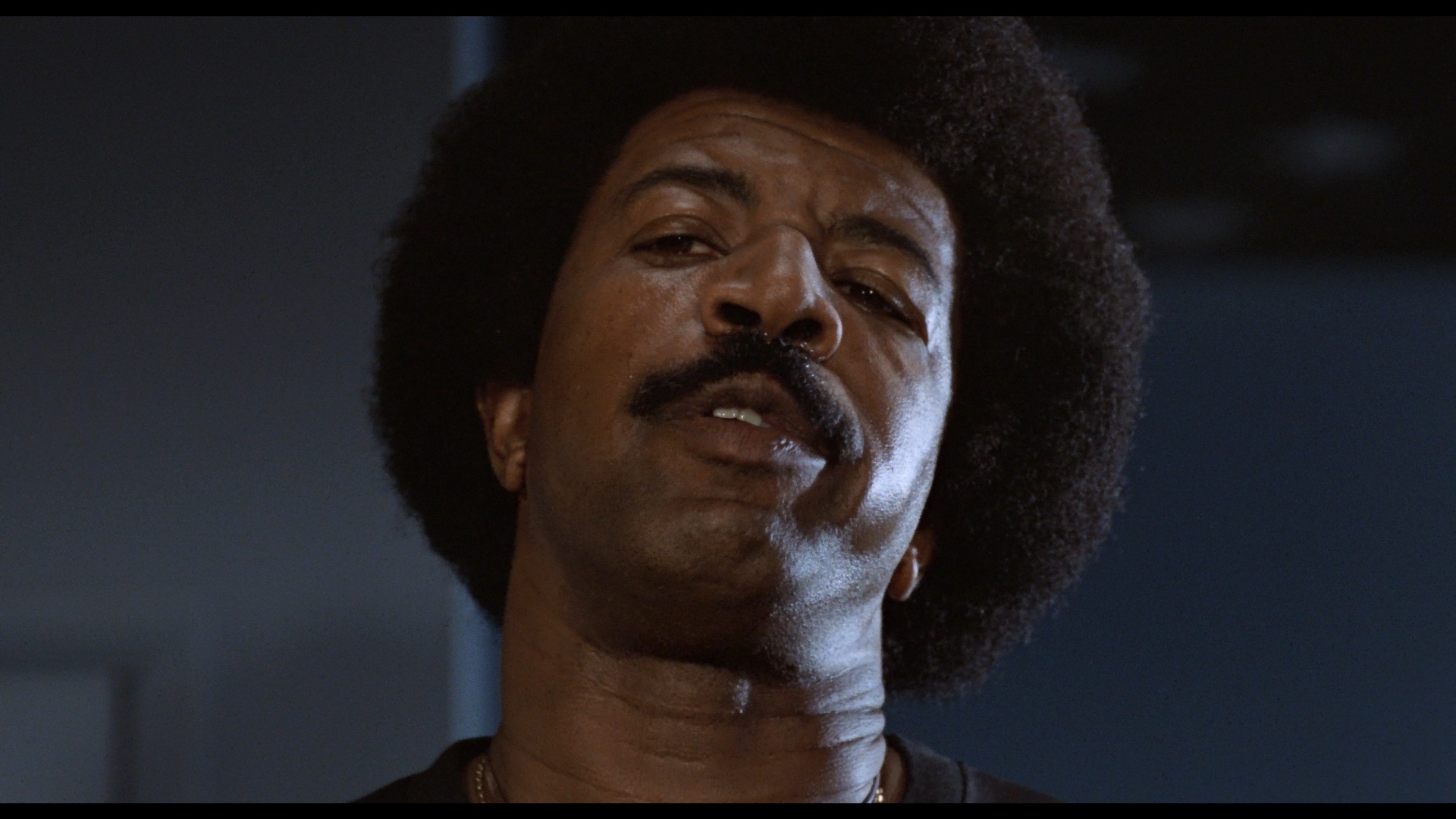 about the potential casting of Warren Beatty and the Calvinist elements taken from Schrader's own upbringing, and a second commentary with film historians Eddy Friedfeld, Lee Pfeiffer, and Paul Scrabo diving more into the details of how the film was assembled at Columbia and how it ties in with the themes and motifs running throughout Schrader's career as both a director and a writer. The film also features an isolated track for the sparing but effective score by Jack Nitzsche (who had scored Blue Collar and would go on to win an Oscar for An Officer and a Gentleman) and the original trailer.
about the potential casting of Warren Beatty and the Calvinist elements taken from Schrader's own upbringing, and a second commentary with film historians Eddy Friedfeld, Lee Pfeiffer, and Paul Scrabo diving more into the details of how the film was assembled at Columbia and how it ties in with the themes and motifs running throughout Schrader's career as both a director and a writer. The film also features an isolated track for the sparing but effective score by Jack Nitzsche (who had scored Blue Collar and would go on to win an Oscar for An Officer and a Gentleman) and the original trailer.  master with beautiful deep blacks, which causes those vibrant colors to really burst out during the second half of the film. The PCM English mono track (with optional English SDH subtitles) sounds just as good as the DTS-HD MA mono one on the American release, and the isolated score is included as well along with the trailer. Rather than a commentary, here you get the option to watch the film with an 85-minute audio interview with Schrader as part of The
master with beautiful deep blacks, which causes those vibrant colors to really burst out during the second half of the film. The PCM English mono track (with optional English SDH subtitles) sounds just as good as the DTS-HD MA mono one on the American release, and the isolated score is included as well along with the trailer. Rather than a commentary, here you get the option to watch the film with an 85-minute audio interview with Schrader as part of The 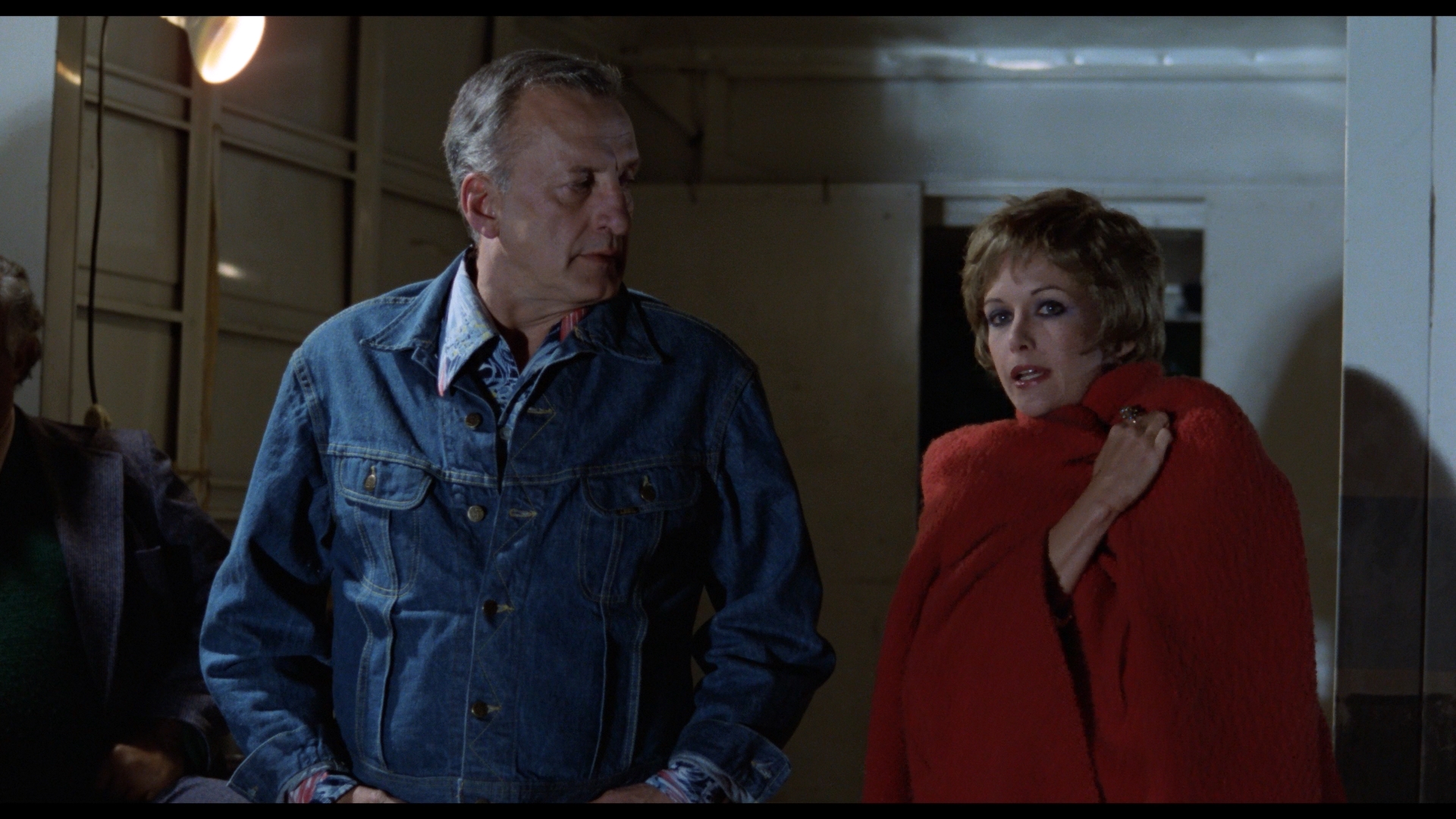 Guardian Interview series recorded in 1993 with Derek Malcolm at the National Film Theatre. It starts off covering highlights of his career before digressing into topics like cinematic morality and its influence on the population, which encompasses everything from John Hinckley Jr. to Henry: Portrait of a Serial Killer. The biggest video extra here is "Hardcore Nitzsche," an edited excerpt from the upcoming Stringman documentary (22m25s) about Nitzsche, with participants like William Friedkin, Milos Forman, Robert Downey, producer Paul Gurian, and musician Russ Titelman discussing the rock and pop veteran's unorthodox approach to film scoring that resulted in a surprising and unexpected array of sounds and musical ideas, with some wild stories about drug and Nitzsche's reaction to
Guardian Interview series recorded in 1993 with Derek Malcolm at the National Film Theatre. It starts off covering highlights of his career before digressing into topics like cinematic morality and its influence on the population, which encompasses everything from John Hinckley Jr. to Henry: Portrait of a Serial Killer. The biggest video extra here is "Hardcore Nitzsche," an edited excerpt from the upcoming Stringman documentary (22m25s) about Nitzsche, with participants like William Friedkin, Milos Forman, Robert Downey, producer Paul Gurian, and musician Russ Titelman discussing the rock and pop veteran's unorthodox approach to film scoring that resulted in a surprising and unexpected array of sounds and musical ideas, with some wild stories about drug and Nitzsche's reaction to 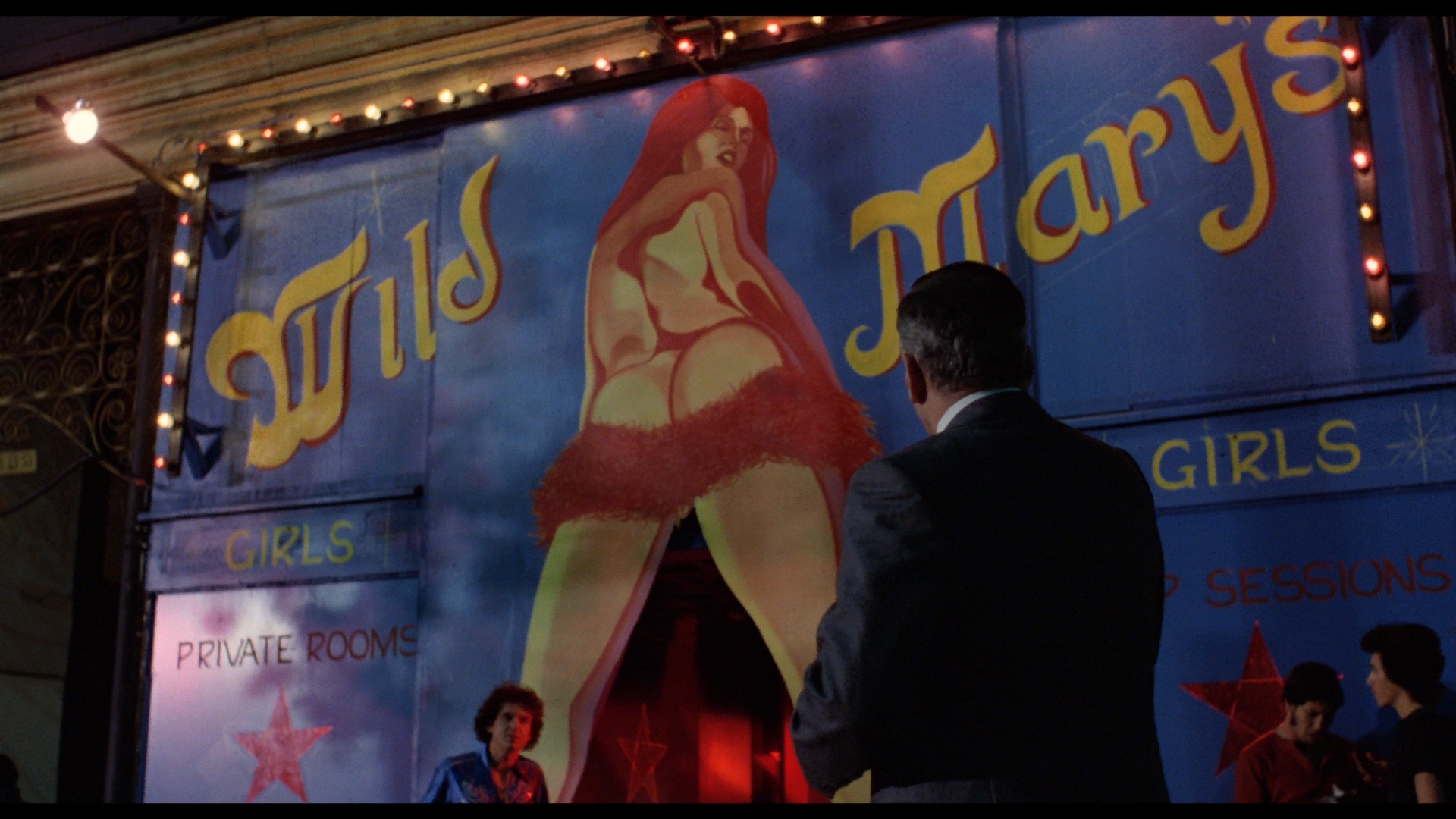 losing an Oscar to Jaws among the highlights. In "Shooting Hardcore" (9m6s), cinematographer Michael Chapman (Taxi Driver, Raging Bull) remembers reading the script before he knew there was a chance of being hired, planning to shoot the film in 16mm before Scott came aboard, and vivid thoughts about the smell of real-life porn sets and the actresses who approached them for jobs on the fake stag film studios they set up for the production. A great little image gallery has some wild candid shots of Schrader on the set, and as usual for Indicator, the striking insert booklet is worthy of special mention and features a new essay by Brad Stevens touching on the film's debt to The Searchers (like the work of Scorese and this film's executive producer, John Milius), particularly with its emphasis on doorways and father figures, and the unsettling nature of the "happy" ending imposed by the studio. Also included is a Schrader interview from Films in Focus in 1979 covering this film's real-life inspiration, Schrader's own religious background, the film's noir aspects, and whether the existence of snuff films matters in relation to this film, plus a bit of a peek at his upcoming film (at the time), American Gigolo-- a very different look at modern sexuality in Los Angeles.
losing an Oscar to Jaws among the highlights. In "Shooting Hardcore" (9m6s), cinematographer Michael Chapman (Taxi Driver, Raging Bull) remembers reading the script before he knew there was a chance of being hired, planning to shoot the film in 16mm before Scott came aboard, and vivid thoughts about the smell of real-life porn sets and the actresses who approached them for jobs on the fake stag film studios they set up for the production. A great little image gallery has some wild candid shots of Schrader on the set, and as usual for Indicator, the striking insert booklet is worthy of special mention and features a new essay by Brad Stevens touching on the film's debt to The Searchers (like the work of Scorese and this film's executive producer, John Milius), particularly with its emphasis on doorways and father figures, and the unsettling nature of the "happy" ending imposed by the studio. Also included is a Schrader interview from Films in Focus in 1979 covering this film's real-life inspiration, Schrader's own religious background, the film's noir aspects, and whether the existence of snuff films matters in relation to this film, plus a bit of a peek at his upcoming film (at the time), American Gigolo-- a very different look at modern sexuality in Los Angeles.